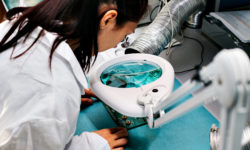The Dose Makes the Poison

The Detroit News recently ran an opinion piece from the Center for Accountability in Science’s Chief Science Officer, Dr. Joseph Perrone, discussing the importance of considering dose before deciding whether a substance poses a health risk.
Too much of anything is rarely good for our health. As we recently learned from an Arkansas man’s scary experience, drinking a gallon of iced tea every day could cause kidney failure. Even water can be deadly—drinking too much, too fast can lead to a dangerous condition known as water intoxication.
The small risk of health issues from drinking way too much tea or water shouldn’t stop us from hydrating. But we’re constantly being bombarded with “new research” linking certain foods, ingredients, or chemicals to health problems—without a proper explanation of how much you’d have to consume before any elevated health risks.
Consider the recent headlines about a California lawsuit alleging “extremely high levels” of arsenic in popular wines. When you delve into the actual allegations, the lawsuit’s plaintiffs are only claiming that the wine they’ve tested has levels of arsenic above the U.S. Environmental Protection Agency’s standard for arsenic in drinking water—not exactly an apples to apples comparison.
The EPA’s drinking water standard for arsenic takes into account that Americans consume much, much more drinking water on a daily basis than wine. And the agency also considers that it’s not just adults consuming drinking water; the levels have to be safe for children, who are more sensitive to arsenic’s effects.
You can read the full piece from the Detroit News here: http://www.detroitnews.com/story/opinion/2015/04/11/perrone-dose-makes-poison/25584195/





